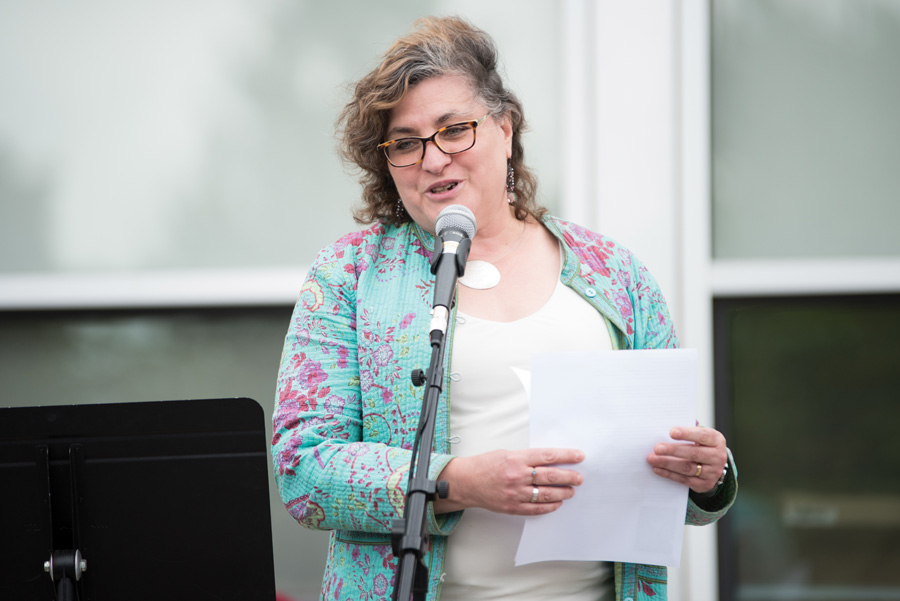Coping with “the new normal”: local wellness leaders weigh in
Daily file photo by Colin Boyle
Rabbi Andrea London. London said Evanston residents should build meditation into their new routines to accept what they cannot control.
March 24, 2020
Local leaders in health, wellness and spirituality say the losses and isolation associated with COVID-19 will likely leave Evanston residents in shock, but intentional planning, movement and mindfulness might help them adapt.
Claudia Rosen, a therapist and clinical director for the Evanston-based counseling service Connections Health, suggests incorporating normal habits whenever possible.
“It can be tempting to see (social distancing) as a weekend, or a vacation, and just let all structure go,” she said. “But the more you can structure your life, the better you’re going to feel. Continue to take showers and get dressed. If you can maintain some routine, that’s going to be really helpful.”
She said individuals should make sure they include time to “escape” in their schedules through music, movies and art, and they should be careful not to spend too much time checking the news.
Rosen said she’s limiting her news exposure by designating a few time slots specifically for online browsing each day. This way, she can set boundaries so the constant flow of information does not overwhelm her.
Local personal trainer Izzy Libmann, whose business IzzyFit operates from a local gym, said individuals should also make sure they incorporate time to move into their schedules.
“With anxiety building, any chance we have to just breathe for a few minutes is really important,” Libmann said. “It will help settle the nervous system and recenter… It can have a huge impact as to how your body responds to being confined.”
Plenty of exercise classes are available online and through streaming platforms. Libmann said residents who are looking for more specialized sessions should tap into the network of local fitness professionals. Working with an Evanston-based personal trainer online can both reduce a user’s risk of injury and help support Evanston’s local economy in a time of national economic turmoil, she said.
But exercise doesn’t have to be formal. Libmann said there are plenty of ways to boost one’s immune systems and endorphin levels through movement. Options range from walking around the block to throwing a dance party in the living room.
Rabbi Andrea London said Beth Emet Synagogue is moving music, meditations, worship services, poetry and prayer to online spaces. This way, she said, the organization can help the community build mental and spiritual health practices into their routines.
London said the mainstream media often markets actionable “quick fixes,” but it’s important to recognize that the ongoing situation with coronavirus is rife with uncertainty, and residents should learn to accept what they cannot control.
“To get used to the new normal, we have to acknowledge our feelings,” she said. “Acknowledge the hardness. Part of what we do spiritually, when we get into a hard place — instead of trying to anaesthetize ourselves by running away from it — is to just sit down and confront the feelings … and meditate through that.”
Rosen also advocates for mindfulness. When individuals tune into their feelings, she said, they can recognize which of their new habits are working well and which they might be able to let go.
To enhance “active coping” strategies, Rosen recommends that residents download meditation apps, such as the app Ten Percent Happier. The apps offer free trials that include guided meditations and sequences for learning about mindfulness.
“It’s important to be self-accepting,” Rosen said. “We might not always feel like our best selves, right now, because we’re stressed. So it’s important to practice self-awareness and self-compassion, because it’s hard.”
Email: [email protected]
Twitter: @maia_spoto


